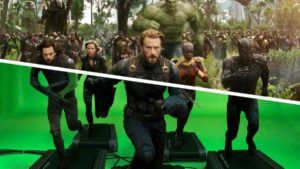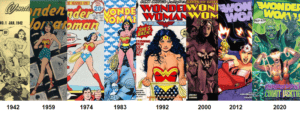Weekend Whatnots on a Sunday Afternoon
Skip to commentsAnything you can think of is controlled by a handful of companies
After a flurry of last-minute filings and orders, the U.S. Department of Justice’s bid to block Penguin Random House’s acquisition of rival Big Five publisher Simon & Schuster is ready for court. Oral arguments are set to begin on August 1 before Judge Florence Pan at the E. Barrett Prettyman U.S. Courthouse in Washington, D.C., with the trial expected to run nearly three weeks.
The closely watched case holds major implications for a publishing industry that has been grappling with consolidation for years. It also looms as a key test for the government amid growing calls for more vigilant antitrust enforcement, and in the wake of a stinging defeat in 2018 in its bid to block the massive $85 billion merger between AT&T and Time Warner.
Andrew Albanese, for Publishers Weekly, has details of the looming drama.
Speaking of Penguin Random House…
The slow embrace of the comic-book medium by elite audiences is a history with its own particular milestones, each marking a moment of sudden approbation by previously disapproving constituencies. George McManus received a congressional dinner and warm words from Franklin D. Roosevelt in celebration of his comic strip, Bringing Up Father ... Art Spiegelman received a special Pulitzer citation for his graphic novel Maus, first published in book form in 1986 …
And now Marvel comics have become Penguin Classics.
Last month, the “leading publisher of classic literature in the English-speaking world” (language from the company website) released, in collaboration with Marvel, three volumes from what’s being called the “Penguin Classics Marvel Collection,” featuring a hefty series of stories from the early days in the life of three Marvel superheroes: Spider-Man, Captain America, and Black Panther. We’ll get to the whys and wherefores of the particular selections a little further on. But let’s first dispense with the question of whether what’s called for is the wringing of hands, gnashing of teeth, and quoting of “O tempora! O mores!” or the jubilant acknowledgment of a birthright.
Comics historian Jeremy Dauber, for The Atlantic, on comics and classics and equality.
Alexandra Petri, at The Washington Post, “Marvelizes” the classics.
Given Marvel’s continuing rampage across the culture, I think we had better gird our loins for the next logical stage of evolution, which is when Penguin Classics, too, will become Marvel movies. Here is how I think that would go…
Banned in Boston America
Attacks on books occupy a special place among the signposts of philistinism and anti-democratic suppression.
The list of all challenged books expanded from several hundred in previous years to nearly 1,600 in 2021. Of the top 10, nine deal with LGBTQ+ or ethnic issues, led by “Gender Queer.”
In January, when a suburban school board outside Chattanooga, Tenn., voted to ban “Maus,” Art Spiegelman’s brilliant Pulitzer Prize-winning graphic novel about his parents’ experience during the Holocaust and as survivors, the board cited a smattering of “curse words” in the work and a drawing depicting his mother’s suicide in a bathtub.
Using selective citations to justify book bans, however, runs counter to the 1st Amendment. “The law does not, and cannot, criminalize the simple isolated passage of a book,” observes Richard Price, a Utah political science professor who runs a blog on censorship. “Instead the dominant theme must be prurient, patently offensive and lack serious value.”
Michael Hiltzik, at The L. A. Times, writes of a growing threat to freedom.
Marvel’s underpaid and overworked VFX artists
With so many films and series releasing back-to-back, we can’t help but wonder about the behind-the-scenes working environment at Marvel Studios and the companies they work with to make their movies and TV series possible. Over the years, several troubling stories have arisen that allege Marvel has harsh working conditions for VFX artists, alongside news of comic book creators not reaping the benefits of the onscreen success of their creations.
The environment is reportedly so bad that a subreddit, r/VFX, has led to an outpouring of further allegations against Marvel‘s working conditions. Many Marvel artists repeated the Vulture article author’s description of being overworked, underpaid, and badly mismanaged. Some VFX artists even now staunchly refuse to work for Marvel, despite the studio’s massively high profile.
Rachel Ulatowski, for The Mary Sue, looks behind the scenes at those Marvelous movie scenes.
Busting out all over
While loading tens of thousands of comic book covers to PriceCharting’s new online comics price guide, we noticed that the portrayal of female characters seemed to become much more racy as the decades passed. Curiosity got the best of us so we ran a study to understand just what has changed about the female form in comics over time….you know, for science.
What we found was significant, but not unexpected.
Modern day covers feature busts that consume more than triple the cover space and show twice the amount of cleavage compared to comics from the mid 20th century. But that’s not all we found.
Price Charting shows more than comic book prices increased over the years.




Comments
Comments are closed.